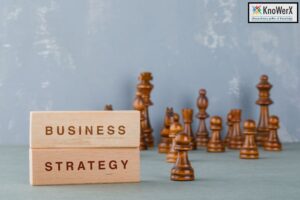Mastering Supplier Relationship Management: Key Strategies & Challenges
Supplier Relationship Management (SRM) is a strategic discipline that has evolved into an essential business function. It moves beyond simple procurement to encompass a broader, more collaborative approach with suppliers. Effective SRM helps organizations build long-term, mutually beneficial relationships that enable businesses to achieve sustainable success. In this detailed article, we will explore the meaning, importance, processes, types, benefits, challenges, and roles of SRM in business, and highlight how Supplier Relationship Management courses can help supply chain professionals develop their expertise.
What is Supplier Relationship Management (SRM)?

Supplier Relationship Management (SRM) refers to the comprehensive approach businesses use to manage their interactions with suppliers. It includes evaluating suppliers, segmenting them based on importance, and building long-term relationships that benefit both parties. The aim is to maximize the value delivered by suppliers while minimizing the risks associated with supply chain disruptions.
SRM is not a transactional or short-term view of supplier interactions. Instead, it emphasizes collaboration, innovation, and partnership. By focusing on these areas, companies can secure a more resilient supply chain that supports overall business objectives, including cost reduction, faster time-to-market, and enhanced product quality. For companies that rely heavily on external suppliers for key components or services, SRM becomes a crucial pillar of their operational strategy.
Historically, supplier management was often an afterthought for many businesses. Procurement teams focused on sourcing goods at the lowest possible cost, sometimes at the expense of long-term quality or relationship stability. However, with the increasing complexity of global supply chains and heightened competition, businesses are now shifting toward SRM as a way to gain competitive advantage and drive innovation.
Why is Supplier Relationship Management Important?

Supplier Relationship Management is crucial for a variety of reasons. As businesses increasingly depend on external suppliers for raw materials, components, and services, the quality and reliability of these suppliers directly impact the company’s success. A poor relationship with suppliers can lead to missed deadlines, poor-quality products, and increased costs, all of which can damage a business’s reputation and profitability.
Here are several key reasons why SRM is important:
Cost Reduction: SRM allows companies to negotiate better terms with suppliers and achieve cost efficiencies. Long-term relationships enable companies to reduce transaction costs, negotiate bulk discounts, and secure more favourable contract terms.
Quality Assurance: SRM ensures that suppliers understand and adhere to quality expectations. Businesses that invest in SRM are better positioned to receive high-quality products consistently, as suppliers work more closely with the company to meet quality standards.
Supply Chain Stability: A robust SRM strategy ensures that suppliers are reliable and able to deliver goods on time. This reduces the risk of disruptions in the supply chain, which can be costly and lead to production delays.
Innovation and Collaboration: Suppliers are often a valuable source of innovation. Businesses that foster strong relationships with suppliers are more likely to benefit from their technological advancements and new ideas. Collaborative innovation can lead to the development of new products or processes that improve competitiveness.
Risk Management: SRM helps businesses identify potential risks early and develop mitigation strategies. By working closely with suppliers, companies can anticipate and respond to issues like shortages, delays, or quality problems before they escalate into bigger problems.
Competitive Advantage: Companies with strong supplier relationships are more agile and responsive to market changes. This flexibility allows them to adapt more quickly to new trends, customer demands, or economic shifts.
In summary, SRM plays a critical role in ensuring a company’s operational efficiency and long-term success. Without an effective SRM strategy, businesses may struggle with inefficiencies, higher costs, and greater supply chain risks.
What is the Supplier Relationship Management Process?

Supplier Relationship Management is a continuous, structured process that requires careful planning and execution. The SRM process consists of several key steps designed to optimize supplier relationships and ensure both parties benefit. Here’s a breakdown of the SRM process:
Supplier Segmentation:
- Not all suppliers require the same level of attention. The first step in SRM is to segment suppliers based on their importance to the business. Suppliers can be categorized as strategic, critical, or transactional. Strategic suppliers are those that provide essential goods or services critical to the company’s success, while transactional suppliers offer more routine products.
- Segmenting suppliers helps businesses allocate resources more efficiently, focusing more attention on key suppliers who offer the most value.
Supplier Evaluation and Selection:
- Before entering into a long-term relationship, suppliers need to be evaluated based on their capabilities, reliability, financial stability, and ability to meet the company’s standards. This step involves assessing suppliers against key performance indicators (KPIs) such as delivery timelines, quality, and cost.
- A thorough evaluation ensures that only the most suitable suppliers are selected, which reduces the likelihood of future issues.
Collaboration and Communication:
- Building a strong, long-term relationship requires clear, transparent, and ongoing communication. Companies should maintain regular dialogue with their suppliers to set expectations, resolve issues, and explore opportunities for collaboration.
- This open communication ensures that both parties are aligned in terms of goals and objectives.
Performance Monitoring:
- Monitoring supplier performance is an ongoing process that involves tracking key metrics such as delivery times, product quality, and cost efficiency. Performance reviews help businesses identify areas for improvement and work with suppliers to address any issues
- Tools like scorecards and performance dashboards can be used to measure supplier performance against agreed-upon KPIs.
Continuous Improvement:
- The final step in the SRM process is continuous improvement. Companies should work with their suppliers to identify opportunities for cost reduction, efficiency gains, and product or process innovations.
- By fostering a culture of continuous improvement, both the company and its suppliers can benefit from long-term success and competitive advantage.
The SRM process is dynamic and should evolve as the business grows and market conditions change. By following a structured process, companies can ensure that their supplier relationships remain strong and productive.
What are the Types of Supplier Relationship Management?

Supplier relationships can vary based on the level of collaboration and importance to the business. There are several types of Supplier Relationship Management, each requiring a different approach:
Transactional SRM:
- In this type of relationship, interactions with suppliers are short-term and focused on specific transactions. The primary goal is to procure goods or services at the lowest cost with little consideration for long-term collaboration.
- Transactional SRM is typically used for suppliers that provide non-critical goods or services.
Collaborative SRM:
- Collaborative SRM involves working closely with suppliers to achieve mutual goals. These relationships are more integrated, and both parties work together to create value. Collaborative relationships are often built on shared goals, such as cost reduction, innovation, or process improvement.
- Companies that engage in collaborative SRM are more likely to benefit from innovation and improved efficiency.
Strategic SRM:
- Strategic SRM is the highest level of supplier relationship management. These relationships are reserved for key suppliers that are essential to the company’s success. Strategic SRM involves deep collaboration, long-term partnerships, and joint development initiatives.
- Suppliers in this category are often viewed as business partners rather than just vendors.
Operational SRM:
- Operational SRM focuses on the day-to-day management of suppliers. It involves managing orders, tracking deliveries, resolving issues, and ensuring that suppliers meet their contractual obligations.
- While operational SRM is more routine, it is still a critical component of overall supplier management.
By understanding the different types of SRM, companies can apply the appropriate management strategies based on the level of importance and collaboration needed with each supplier.
What are the Benefits of Supplier Relationship Management?

Implementing a robust Supplier Relationship Management strategy offers numerous benefits for businesses. Some of the key benefits include:
Cost Reduction:
- A strong SRM strategy enables companies to negotiate better prices, reduce operational costs, and achieve economies of scale. Suppliers are often more willing to offer discounts or favourable terms to companies with which they have long-term relationships.
Improved Quality:
- Working closely with suppliers helps ensure that they meet or exceed quality expectations. This leads to better products and services, reducing the risk of defects or quality issues that can negatively impact a company’s reputation.
Enhanced Innovation:
- Suppliers can be valuable sources of innovation. By fostering strong relationships, businesses can tap into their suppliers’ expertise and knowledge to develop new products, improve processes, or introduce new technologies. Collaborative innovation can give businesses a competitive edge in the market.
Risk Mitigation:
- Strong supplier relationships help businesses identify and mitigate risks more effectively. Companies can work with suppliers to develop contingency plans, ensuring that supply chain disruptions are minimized. This reduces the risk of costly delays or product shortages.
Increased Agility:
- Companies with strong supplier relationships are more agile and able to respond quickly to changing market conditions. This flexibility allows them to adapt to shifts in customer demand, new regulations, or supply chain disruptions more effectively.
Sustainable Business Practices:
- SRM can promote more sustainable business practices by encouraging suppliers to adopt environmentally friendly processes, reduce waste, and improve resource efficiency. This can enhance the company’s reputation as a responsible and sustainable organization.
Long-Term Stability:
- Building long-term relationships with suppliers provides businesses with greater stability. Reliable suppliers are less likely to disrupt operations, and the mutual trust developed over time helps ensure continued success.
By investing in SRM, businesses can unlock a range of benefits that lead to improved performance, competitive advantage, and long-term success.
What are the Challenges of Supplier Relationship Management?

Despite its many benefits, Supplier Relationship Management is not without its challenges. Implementing an effective SRM strategy requires time, resources, and commitment. Some of the key challenges businesses may face include:
Supplier Resistance:
Some suppliers may be resistant to change or unwilling to engage in long-term collaborative relationships. They may prefer to maintain a transactional approach, which can hinder efforts to build stronger partnerships.
Lack of Resources:
Managing supplier relationships requires dedicated resources, including personnel, technology, and financial investment. Smaller businesses may struggle to allocate the necessary resources to effectively manage SRM.
Data and Technology Integration:
To effectively manage supplier relationships, businesses need access to accurate and timely data. Integrating data from multiple sources, such as procurement systems, supply chain management software, and supplier portals, can be challenging. Inadequate data integration can lead to miscommunication, errors, and inefficiencies.
Cultural and Geographical Differences:
Working with suppliers across different regions and cultures can present communication challenges. Language barriers, cultural differences, and time zone variations can complicate relationship-building efforts.
Measuring Supplier Performance:
Establishing clear metrics to evaluate supplier performance is essential, but it can be difficult to identify the right key performance indicators (KPIs) and consistently measure supplier performance.
Risk of Overdependence:
While building strong relationships with key suppliers is important, businesses must be cautious not to become too dependent on any single supplier. Overdependence can lead to significant risks if the supplier faces financial difficulties or supply chain disruptions.
Maintaining a Balance of Power:
In some cases, the balance of power in supplier relationships may be uneven. Large suppliers may exert greater influence over smaller businesses, making it difficult to negotiate favourable terms or resolve disputes.
The Role of SRM in Modern Business Strategy

Supplier Relationship Management is not just a procurement function; it is a critical component of modern business strategy. In today’s globalized economy, businesses must rely on external suppliers to remain competitive and deliver value to customers. SRM helps companies optimize their supply chains, reduce costs, and improve overall efficiency.
Incorporating SRM into the broader business strategy involves aligning supplier management practices with the company’s goals and objectives. This means working closely with suppliers to develop new products, reduce costs, improve sustainability, and mitigate risks. By treating suppliers as strategic partners, companies can create a more resilient and responsive supply chain.
Supplier Relationship Management Courses at KnoWerX
For supply chain professionals looking to deepen their understanding of Supplier Relationship Management, KnoWerX offers specialized courses designed to equip learners with the knowledge and skills needed to excel in SRM roles. These courses cover essential topics such as supplier evaluation, contract negotiation, performance monitoring, and risk management.
KnoWerX’s SRM courses are ideal for procurement managers, supply chain analysts, and business leaders who want to enhance their supplier relationships and drive better business outcomes. With a strong emphasis on real-world applications, the courses provide practical insights and tools that can be applied immediately in the workplace.
FAQs: Frequently Asked Questions
What is Supplier Relationship Management (SRM)?
Supplier Relationship Management (SRM) is a strategic approach to managing interactions with suppliers, focusing on long-term collaboration, risk management, and value creation to enhance supply chain efficiency.
Why is SRM important for businesses?
SRM helps reduce costs, improve product quality, foster innovation, and ensure supply chain stability, providing businesses with a competitive edge and long-term success.
What are the main steps in the SRM process?
The SRM process includes supplier segmentation, evaluation and selection, collaboration, performance monitoring, and continuous improvement to maintain productive supplier relationships.
What are the challenges of Supplier Relationship Management?
Challenges include supplier resistance, lack of resources, data integration issues, cultural differences, and the risk of overdependence on key suppliers.
How can businesses benefit from strong supplier relationships?
Strong supplier relationships result in cost reductions, improved quality, greater agility, risk mitigation, and access to innovation and collaborative opportunities.
End Notes

Supplier Relationship Management is an essential discipline for businesses looking to optimize their supply chains, reduce costs, and improve operational efficiency. By fostering long-term, collaborative relationships with suppliers, companies can gain a competitive advantage, drive innovation, and mitigate risks.
As supply chains continue to evolve, the importance of SRM will only grow. Businesses that invest in developing strong supplier relationships will be better positioned to navigate the complexities of the global market and achieve sustainable success.
For supply chain professionals looking to advance their careers, exploring SRM courses at KnoWerX is a valuable step toward mastering the skills needed to excel in this critical field.
Image Reference : Freepik
Disclaimer: All trademarks, logos, and brand names are the property of their respective owners. All company, product, and service names used in this website are for identification purposes only. Use of these names, trademarks, and brands does not imply endorsement.



